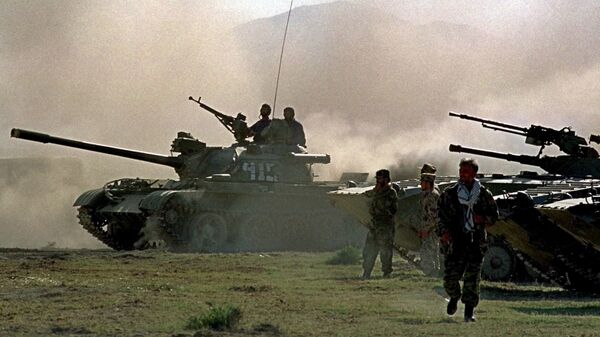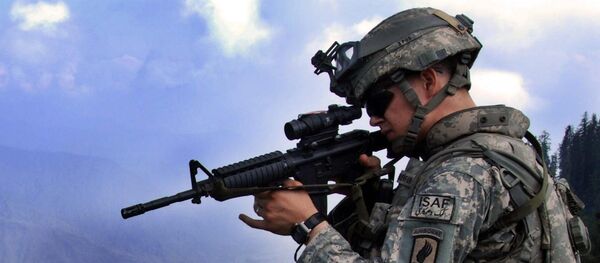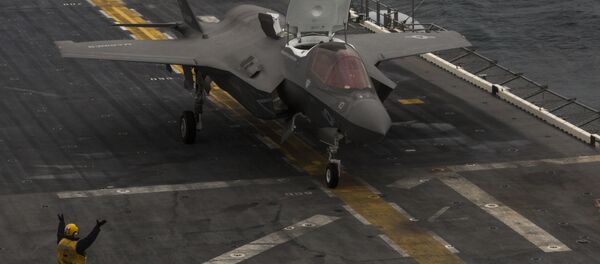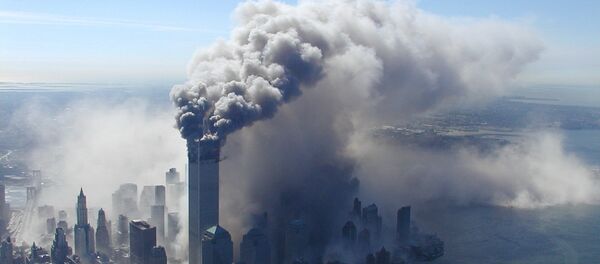The Pew survey, conducted September 18-24 among 1,754 US adults, showed that 49 percent believe the US has mostly failed to achieve its goals in the Afghan War, with 35 percent saying it's mostly succeeded. Approximately 16 percent of survey participants said they didn't know if the US has failed or succeeded.
While the reverse was true three years ago during the presidency of Barack Obama, Republicans are now more optimistic than Democrats, with half of Republicans and Republican-friendly independents saying the US has succeeded, but only three in 10 Democrats and Democrat-leaning independents saying so.
Further, only 45 percent of respondents said the US made the right decision back in 2001 to use military force to respond to the September 11 attacks, and 39 percent said it was the wrong decision. That's down from 69 percent in 2006 who approved of the US response, and 83 percent in 2002, a few months after the war began.
Brian Terrell, a long time peace activist and also co-coordinator of Voices for Creative Nonviolence, joined Radio Sputnik's Loud & Clear Friday to talk about the war, the tragedy it's wrought and why he believes it needs to be opposed.
The 19 terrorists who hijacked four commercial airliners that day used the planes as flying bombs, piloting two into the 110-story-tall World Trade Center towers in New York City and one into the side of the Pentagon in Virginia, just across the river from Washington, DC, the nation's capital. The fourth plane, believed to be intended to crash into the White House or US Capitol, instead crashed into a field in Pennsylvania after the passengers fought back against the hijackers, disrupting their plans. Over 3,000 Americans were killed when the World Trade Center towers collapsed, in the raging fire at the Pentagon that collapsed one side of the structure and in the field in Shanksville, Pennsylvania.
In his address that evening, President George W. Bush, who'd only been elected that previous November, pledged the US would "make no distinction between the terrorists who committed these acts and those who harbor them."
On September 20, the US demanded the Afghan government turn over al-Qaeda leader Osama bin Laden, whom it believed to be responsible for the attacks, along with all other al-Qaeda leaders, and take immediate action against terrorist training camps in their country.
The Taliban condemned the attacks and signaled it was ready to negotiate, even to turn over bin Laden if the US could provide evidence of his complicity in the attacks, but on October 2, Bush rejected their appeals, saying, "There is no timetable for the Taliban, just like there are no negotiations," the BBC reported. The air campaign against the Taliban began five days later, on October 7, 2001.
"Our rejection of this war has to be unequivocal," he said, noting that it Barack Obama, who became president in 2008, "made things worse" by trying to draw a line of demarcation between the then-ongoing war in Iraq — which he called "the bad war" — and the "good war" in Afghanistan. Obama "surged" 30,000 US troops into the Central Asian nation, emulating Bush's "surge" of 20,000 troops into Iraq in 2007, billed as key to turning the tide in the anti-insurgency campaign.
"It hasn't been smart for anything but selling more weapons," Terrell told hosts Brian Becker and John Kiriakou.
Terrell noted the irony of the war's original name: Operation Infinite Justice, which was later changed to Enduring Freedom. Likewise, then-Vice President Dick Cheney, two weeks after the bombing started, said, "The way I see it is, it's a new normal," the activist noted.
Victory for the US coalition came quickly in 2001, driving the Taliban from the country in only a handful of weeks. However, the US and its allies in the ethnically Uzbek and Tajik Northern Alliance, themselves long opponents of the Taliban, have failed to exert control over most of the rugged, mountainous country, where an insurgency has raged for nearly two decades, fueled as much by indigenous indignation at foreign occupation as by underground networks from across the border in Pakistan, which the Taliban and like organizations such as the Haqqani Network have kept alive.
"The whole idea of the invasion," Kiriakou, who was in the CIA at the time, said, "was just to get bin Laden, to destroy al-Qaeda and to leave. And I remember George W. Bush specifically saying, ‘We are not interested in nation-building.'"
The "sad" truth, Terrell said, is that the US never intended on leaving. "The blowback of what the US has been doing in not only Afghanistan but Iraq, Syria, Yemen, is so clear and so inevitable that it's hard to believe that it's not intentional." He said the enormous amount of money going toward the war — somewhere between $841 billion and $2 trillion, according to various estimates cited by CNN, much of it into the pockets of US military contractors — instead of into other parts of the US economy "could be a great incentive to keep this war going and to pursue policies not to end this war but to perpetuate it."
As the Afghan War continues to stall and US President Donald Trump grows increasingly impatient with the conflict, Erik Prince, the founder of private security firm Blackwater, now known as Academi, has sought to convince Trump to privatize the war in its entirety by turning it over to his contract security forces to end the war by "rationalizing and restructuring" how it's fought, Sputnik reported in August, when the US was reviewing its strategy in the war.
However, neither the US Department of Defense nor the Afghan government have looked kindly on the idea. US Defense Secretary James Mattis has dismissed it as not a "wise idea," and a senior State Department official told NBC in August that US Secretary of State Mike Pompeo hated the idea, saying there's "not a chance" it'll be adopted.
Prince traveled to the Central Asian country late last month to sell his ideas to Afghan government directly, which firmly shot him down. The Afghan Office of the National Security Council lambasted the proposal Friday as "destructive."
"In no manner does the government of Afghanistan condone this destructive and divisive debate," the NSC said, warning that the government would never "allow the counter-terrorism fight to become a private, for-profit business," Sputnik reported.
The NSC statement also referred to Afghan security and defense forces, which "have the primary responsibility and authority for safeguarding […] our national sovereignty, and the independence and territorial integrity of our beloved country and people."
The Watson Institute at Brown University estimates that over 111,000 Afghanis have been killed since the war began 17 years ago and that an additional 360,000 may have died from indirect causes related to the war, such as public health problems like disease and hunger faced by refugees, interrupted vaccination program and food supplies, stepping on undetonated bombs or land mines, and environmental disasters to which relief workers and governments could not adequately respond due to the war.
Noting the median age in Afghanistan is "a few months over 18 years old," Terrell said, "So we are punishing people who were not born yet, who don't know anything about 9/11 and who've known nothing but war."
"The tragedy is beyond expression, and I'm just so sad on this anniversary."









